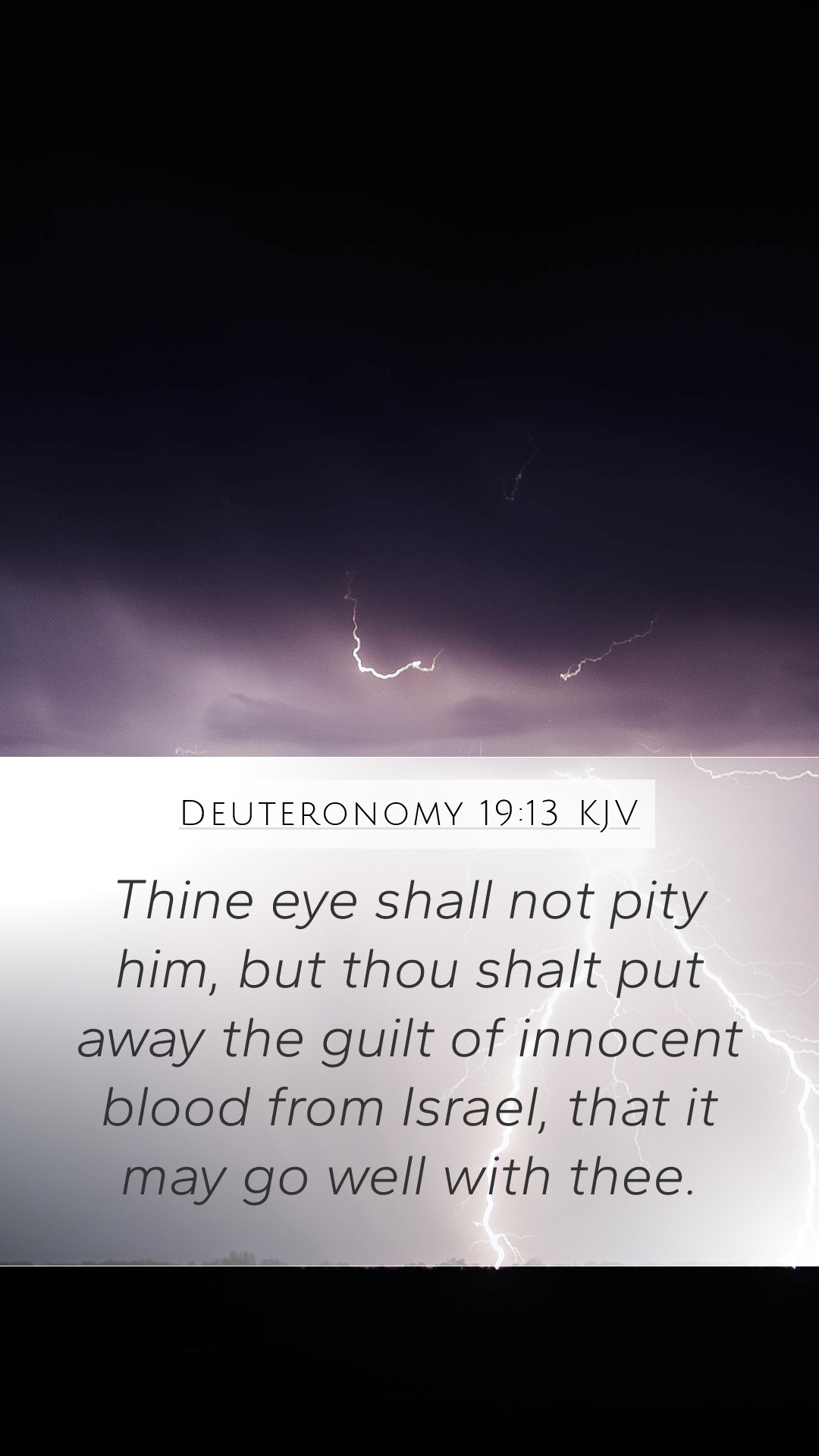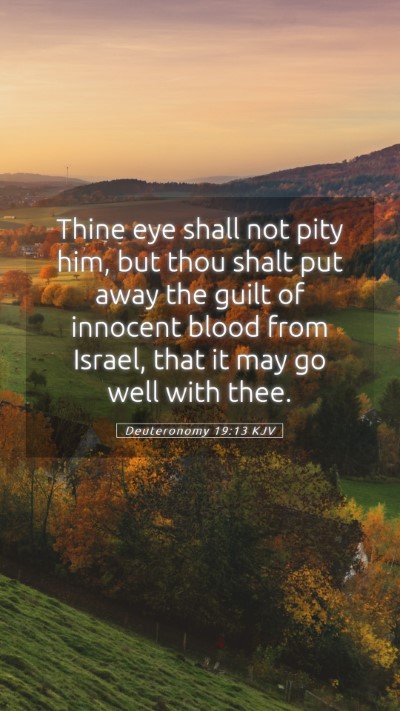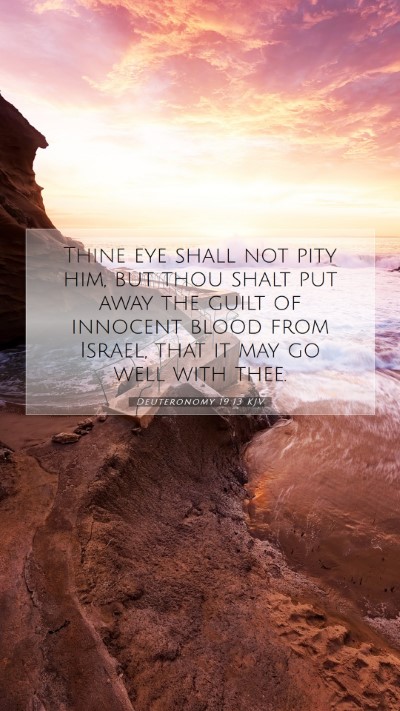Understanding Deuteronomy 19:13
Bible Verse: Deuteronomy 19:13 states, "Your eye shall not pity him, but you shall put away the guilt of innocent blood from Israel, that it may go well with you." This verse emphasizes the importance of justice and the consequences of refusing to act against wrongdoing.
Bible Verse Interpretations
This verse can be complex, and understanding it requires a careful examination of its context and implications. Below, we provide a synthesis of insights from several public domain commentaries.
Matthew Henry's Commentary
Matthew Henry highlights that this verse addresses the responsibility of the community to remove any evil from their midst. The admonition to not show pity indicates that, in maintaining justice, the Israelites must prioritize the welfare of society over individual sympathies. Failure to act results in the perpetuation of sin and guilt, which ultimately harms the whole community.
Albert Barnes' Commentary
Albert Barnes focuses on the seriousness of bloodshed and the community's obligation to prevent innocent blood from being shed or avenged improperly. He points out that showing pity, in this instance, could lead to justice being undermined, thus disturbing the moral order God intends for His people. He emphasizes that God's laws are established for the collective good, and adherence to them is essential for the nation to prosper.
Adam Clarke's Commentary
Adam Clarke adds further depth by discussing the cultural and legal frameworks of Israelite society. He notes that this directive reflects God’s justice, insisting that the law must take precedence over personal feelings. The callousness suggested by "your eye shall not pity him" reinforces the idea that societal justice cannot be compromised for individual emotions, as doing so invites divine disfavor.
Biblical Exegesis of the Verse
The underlying themes in Deuteronomy 19:13 relate to justice, community responsibility, and the importance of maintaining a clear moral framework. This verse can be seen as a part of the broader legal code given in Deuteronomy that aims to guide the Israelites in their dealings with one another in a fair and righteous manner.
Key Themes
- Justice: The need for justice in the community, particularly concerning the shedding of innocent blood.
- Community Responsibility: The obligation of the community to act against wrongdoing, fostering a just society.
- Moral Order: The necessity of adhering to God’s laws to maintain order and prevent chaos.
Applying Deuteronomy 19:13 to Daily Life
In modern application, this verse serves as a potent reminder of the importance of standing for justice and righteousness within our communities. Believers are called not just to individual piety but to work actively against injustices that threaten the innocent:
- Advocating for Justice: Engaging in social justice initiatives that protect the rights and lives of the vulnerable.
- Community Involvement: Taking active roles in local governance and community services to enact positive change.
- Personal Integrity: Upholding moral integrity in personal decisions that reflect God’s justice in society.
Cross References
This verse connects with several other passages which elaborate on themes of justice and community responsibility:
- Exodus 23:7: “Keep far from a false charge, and do not kill the innocent and righteous, for I will not acquit the wicked.”
- Numbers 35:33-34: “You shall not pollute the land in which you live, for blood pollutes the land.”
- Romans 13:4: “For he is God’s minister to you for good. But if you do evil, be afraid; for he does not bear the sword in vain.”
Conclusion
Deuteronomy 19:13 serves as a powerful exhortation for the communities of faith to enforce justice, particularly in instances of violence against innocents. It underscores the balance between emotion and moral obligation and reminds believers of their role in upholding God’s law, ultimately contributing to a just society.
Further Study Opportunities
For readers interested in deeper study of this scripture and similar biblical texts, consider exploring:
- Participating in Bible Study Groups focused on the Old Testament.
- Utilizing Online Bible Study resources to investigate themes of justice and community.
- Seeking out Bible Study Guides that delve into the ethical implications of Old Testament laws.
Understanding scriptures like Deuteronomy 19:13 requires engaging with both the text and the broader historical and cultural contexts. This exploration promotes a well-rounded comprehension of biblical justice and societal responsibilities.


